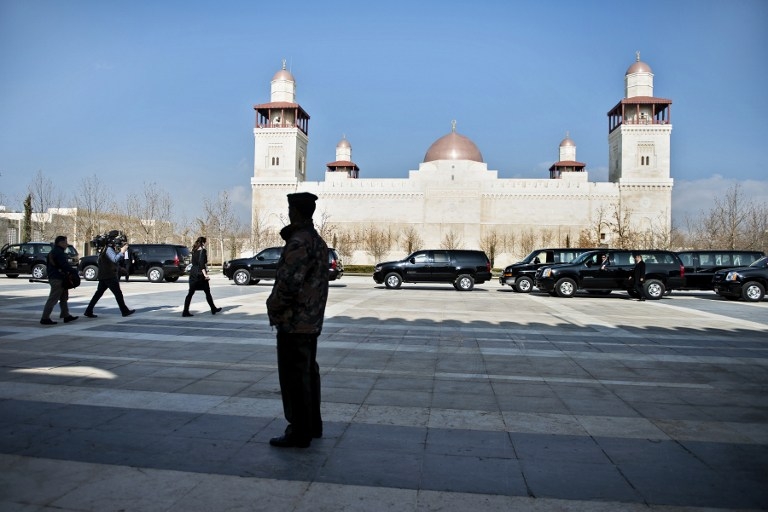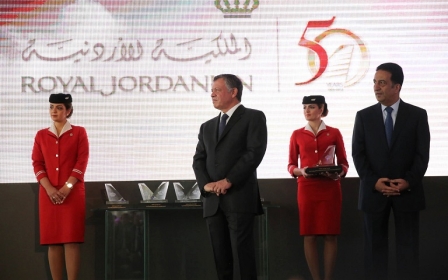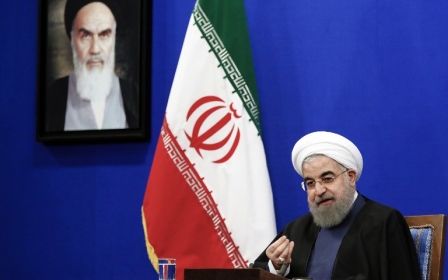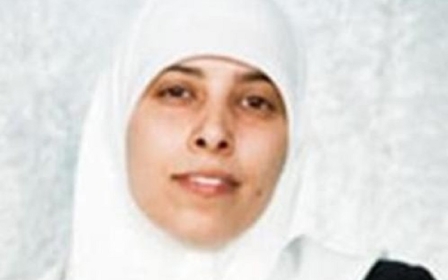Dictating sermons by SMS, Jordan hopes to clamp down on 'extremism'

Friday at noon, and Amman’s weekend peace is shattered by mosque loudspeakers broadcasting sermons. Bouncing off the sides of the city’s hills, the voices of the preachers compete with one another to cacophonic effect.
Recently, however, the Jordanian government has rolled out a new initiative that attempts to drastically lessen the difference between what each of them is saying.
'The sermon is a vitally important tool against extremism,' said Sheikh Ismail al-Khutaba
While the country’s Ministry of Religious Affairs (awqaf) has long provided suggested topics for the weekly sermon, since November last year they have mandated that the mosques stick to the topic dictated by them.
The move is designed to clamp down on extremist preaching, and comes against a background of a series of Islamic State-linked attacks in the country, including one in Karak last December that killed 10.
“The sermon is a vitally important tool against extremism,” said Sheikh Ismail al-Khutaba, who is responsible for the initiative at the awqaf.
“We now have one subject that we send to all the imams by text message a few days before Friday. It contains the main points that should be addressed, and suggestions for scriptural references.”
'Not appropriate'
Friday prayers are the most important point in Islam’s weekly calendar, and form a social and political meeting point in Muslim communities throughout the world.
Ordinary Jordanians spoken to by Middle East Eye were not impressed by the initiative, however.
Samir, 47, is the key holder for a mosque in the working-class neighbourhood of Ras al-Ain. Sitting outside his toy and children’s clothes shop, he said that he was not necessarily against unifying the sermons, but the topics being provided by the government were not suitable.
“Jordan has a lot of problems,” he said. “Why don’t we hear about them from the preacher? The government is addressing topics that are not appropriate for our lives as citizens here.”
Samir’s sentiments were echoed by the owner of a religious bookshop next to the city’s main al-Husseini mosque, who gave his name as Mohammed Abu Mujahid.
“The government make it so that it is not possible to talk about oil or security or the economy. These are important topics to people, but the appointed topics are not interesting and not important.”
He acknowledged that while it was important to counter extremism, he said “in my eyes, the real extremism is telling us what to think.”
Jordan has been suffering an economic crisis at least partly caused by the wars in neighbouring Iraq and Syria. The government has struggled to address the high cost of living, high levels of unemployment and the burden of more than a million Syrian refugees in the country. A recent decision to raise taxes saw rare protests break out.
The Karak attack was the latest in a string of attacks by Islamist militants. Five intelligence officers were shot dead in their offices on June 6 last year by a lone attacker. IS detonated a car bomb at a Jordanian army post on the Syrian border on June 21, killing six soldiers.
'A security issue'
Jordan has taken part in the US-led coalition’s fight against IS in Iraq and Syria, with a Jordanian pilot captured and subsequently burned to death by the group. Reports say that as many 4,000 Jordanians have gone to fight in Syria, although that number is disputed.
A scholar of Islamic studies, who wished to remain anonymous, said that addressing issues of extremism and internal politics during the weekly sermon was largely off the table.
“Political issues are seldom dealt with. It’s not surprising – such discussions are viewed by the authorities here as a security issue.”
Most mosques in the country are now run by the awqaf, with the imam appointed and regulated by them.
Khutaba, the awqaf Sheikh, said that the ministry deployed monitors to mosques run by the government.
'At each stage in a Muslim Jordanian’s life you are surrounded by one influence or another. School, household, university, work – all play a role. So, you can’t just regulate the mosque.'
“If we hear that the preacher is not addressing what we have asked them to, we will speak with them, and find out if there was a technical problem or if, perhaps, they have bad ideas.” Although the Sheikh would not specify what punishments existed, the awqaf has the power to fire a preacher.
In addition, according to the Islamic studies’ scholar, Jordan’s powerful intelligence services also regularly monitor mosques. The authorities have become increasingly concerned about the threat of violent extremism, with unconfirmed reports that more than 600 suspected militant sympathisers have been arrested in the wake of the Karak attack. A preacher who last year criticised Jordan’s participation in the fight against IS was also arrested.
“I like it when the sermon brings topics that talk about the situation we live in,” Husam, 31, a greengrocer, told MEE as he stacked fruit in a downtown market.
“There is extremism here, there is terrorism. To standardise the sermon means it will lose much of its power against those things.”
Osama al-Sharif, a Jordanian political analyst who has studied the country’s Salafi movement, also cast doubt on the efficacy of the move.
“People who want to listen to Salafi preachers will find a way. They will just meet in their own homes, away from the government-run mosques.”
Salafism is an Islamic movement that broadly seeks to return Islamic societies to what they see as the true ways of early Islam.
Although not all Salafis believe in violence, Salafi ideology was important for the development of later militant groups such as al-Qaeda and IS.
A wider issue
In any case, al-Sharif said, the fight against extremism cannot be limited to the Friday sermon.
“At each stage in a Muslim Jordanian’s life you are surrounded by one influence or another. School, household, university, work – all play a role. So, you can’t just regulate the mosque.”
“The jury is still out on whether the government and civil society can come up with a strategy to counter extremism that will be able to reverse decades of a Wahhabi, or Salafi, outlook on life.”
A Jordanian government spokesman did not return a request for comment on whether a broader anti-extremism strategy was in place in the country, and if so, how the sermon initiative fit into it.
When asked whether Jordanians would be less likely to attend mosques in the wake of the standardisation, Hussam said it would discourage people from going.
“If it’s only one sermon, why should people bother going to the mosque at all? They can just get a recorded sermon or watch it on TV.”
At the same time, Sharif said that as Jordanians tend to be suspicious of government authority, the strategy would not likely succeed.
“When the government is meddling in religious affairs, and people are not free to go listen to their favourite preacher, it becomes ludicrous. For some bureaucrat to decide what the sermon is will be a failure.”
Whether the initiative will be successful in the long run appears to hinge on if the government can convince Jordanians that it is addressing the topics that matter to them in the sermons, and keep them away from alternative preaching.
But for now, people like Mohammed are disaffected, and angry with what they see as the authorities’ intent to keep pressing issues out of one of Muslim life’s most important spaces.
“Islam is a religion that has everything in it – society, family, economics. It is not possible to say that our religion is praying only. So how can politics not enter the mosque?”
This article is available in French on Middle East Eye French edition.
New MEE newsletter: Jerusalem Dispatch
Sign up to get the latest insights and analysis on Israel-Palestine, alongside Turkey Unpacked and other MEE newsletters
Middle East Eye delivers independent and unrivalled coverage and analysis of the Middle East, North Africa and beyond. To learn more about republishing this content and the associated fees, please fill out this form. More about MEE can be found here.




